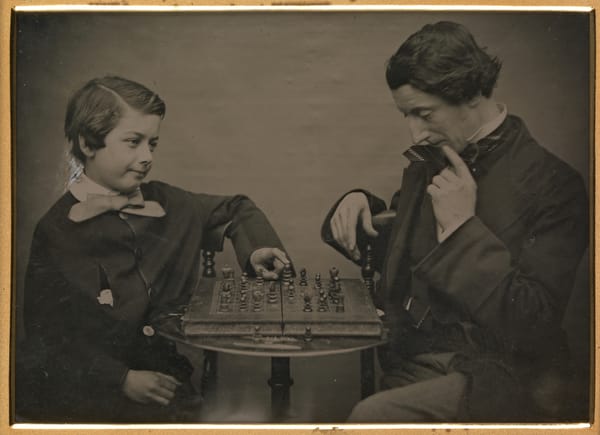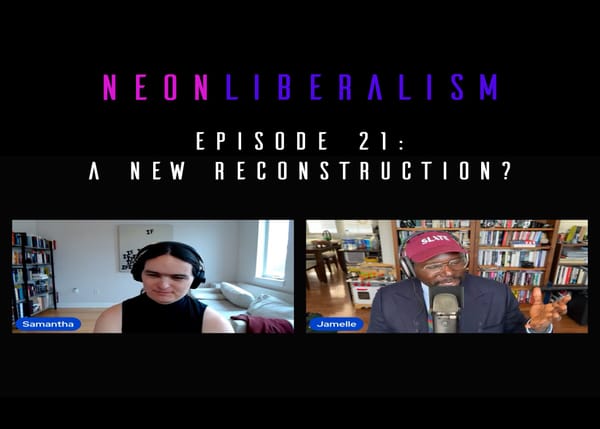Ideals Worth Defending in a Cynical Age

The conversation about ideals in our culture has grown profoundly trivial. Our articulate class is very wishy washy about the ideals they promote, and hold opponents to the highest imaginable standards while sloppily and reactively moving goalposts on their own side. Meanwhile, everyone wants to pigeonhole good and evil. They will say that commerce is inherently corrupting, business exploitative, or government oppressive. Then they will turn around and treat the area they hadn’t denounced as intrinsically morally superior.
If we are going to get a grip on our ideals, we are going to have to come to terms with what it even means to have an ideal. To have an ideal is not simply to give yourself the soapbox from which to scream at your opponents. It is not to hold up the efficiency of markets so that you can shout about the inefficiency of government, or to cherry pick admirable liberals and contemptible conservatives.
To make a principled commitment to an ideal is to recognize fundamental human limitations. The libertarian narrative says that humans have a limited ability to control their greed—perhaps no such ability at all. As such, we should judge our systems based on which directs our greed in the most socially beneficial way. And that system, they argue, is what has been called capitalism; property rights and robust markets. Progressives respond that we can in fact overcome our greed, with the right encouragement. In fact, we have to in order to enact property rights at all, something that a sovereign would not necessarily directly benefit from. Progressives believe our limitations are primarily ignorance and the inertia of the status quo, which includes an economic system that they say fosters our greed.
I will focus on two of the biggest limitations to achieving our ideals. On the one hand, we feel a strong desire to do many things that we know are wrong; I will refer to this as our fallenness. On the other hand, it is very difficult to know exactly what we should do in the first place; I will refer to this as the problem of uncertainty.
The two-thousand-year tradition describing fallenness begins with St. Augustine of Hippo, writing toward the very end of the western Roman Empire. A theologian and interpreter of the Bible, Augustine believed that human will was tainted by sin. For that reason, even when we recognize the path of righteousness, we are drawn away from it. The only thing that can heal our will is the gift of God’s grace; that is the only thing that can lead us to salvation.
We need not be Christian or subscribe to this theology to see that we are tempted to do things we know we shouldn’t every day. This includes everything from overeating to adultery. A man who invites a beautiful woman to his home when his wife is out of town knows that betraying their marriage is wrong. He may even believe that he will not do it. But if he invites her over, and she is willing, he may find the temptation too great, in the moment. That is why believers and nonbelievers alike can find wisdom in the line from the Lord’s Prayer which reads “lead us not into temptation.” A good husband will not put himself in such a situation in the first place, because he will acknowledge his limitations as a fallen creature.
Where there are human beings, there will be betrayal, domination, and abuse, among a dizzying array of other wrongs. On top of this, there will be mistakes. Consider trust, one of the most important elements in any family, community, and workplace. Trust by its nature creates vulnerability. Trust can be taken advantage of. It can be easier to get what you want from me by lying, if I am going to trust your word.
It is easier to hurt a child, if I am a parent, teacher, or priest—someone who the child trusts, but more importantly, someone the rest of the community trusts with the child. It is easier to embezzle money from a firm if you have been trusted with its finances and there is minimal oversight.
The need for trust is the point at which our fallenness intersects with our uncertainty. Trust is an act of faith—a leap in the dark. We need to make that leap because we cannot know in advance how people will behave. No matter how reliable someone has been in the past, they can disappoint you in the future. And we may not even know all that much about someone before we have to rely on them—interviews and resumes only tell you so much about a potential new hire. Trusting someone else means making ourselves vulnerable to the fallenness of their nature.
But being able to take that leap of faith and put your trust in someone new is an important ideal in a diverse, cosmopolitan society. It is a difficult ideal precisely because it makes you vulnerable. But it is an important and necessary one because we can never bridge that gap in our knowledge. If we knew whether we were really vulnerable, whether someone would ever conceivably take advantage of us or what the specific odds were that they would, it wouldn’t be trust. But we can’t do away with that uncertainty any more than we can do away with the fallenness that puts us at risk. And so we must not only trust, but strive to be trustworthy ourselves, even when we have fallen short of it in the past, even if it seems easier to cut corners, and even when we’ve had people rely on us who haven’t turned out to be particularly trustworthy themselves.
Drawing up laundry lists of how we have fallen short of our ideals in certain domains is far from sufficient for convicting entire swaths of life of being intrinsically immoral. We are always falling short. Even the great Reverend Martin Luther King, Jr., cheated on his wife. That was not only contrary to his own faith, it was simply wrong. He fell short.
But does anyone doubt that when he did shine, he shined brighter than anyone? We look to King for reaching towards an ideal of mutual respect and dignity across races and creeds, and getting closer to it than many of us could dream of doing. King was fallen, like all of us. But he was also a hero and a worthy role model in more ways than one. He is the sort of role model available in an imperfect world, disappointing only to those for whom any imperfection at all invalidates everything good in a man.
Cynicism is not a morally serious position, at least not as a stand-alone picture of the world. It is the stance of people who have given up. Too many people today have given up in just this way. They have given up believing that liberty is more than a mask for power struggles. They have given up on the ideal of good commerce. Most frightening of all, they have begun to give up on democracy and democratic ideals.
When I say, for example, that we need to strive to honorably provide what can be used wisely, I am not attempting to whitewash the frequently ugly reality on the ground. The leftists are right that, too often, the employer-employee relationship involves the one-sided domination of the latter by the former, or that too many managers abuse or exploit the vulnerabilities of those they manage. And the economists are right that too many employees steal from their employers, from the college kid working in retail to top corporate executives. And the libertarians are right that regulators are often in the pockets of the regulated, or that politicians are too willing to turn win-win scenarios into win-lose scenarios so long as their constituents are the winners.
The defense of an ideal which could be defeated by a simple example of any of the abuses above, or even by a pattern of such abuses, is no defense at all. Where humans tread, there will be human wrongdoing. Sometimes, that wrongdoing will proliferate and come to characterize whole areas of society. In the worst case, it will characterize whole societies.
But that is not a reason to abandon ideals and embrace cynicism. The fact of the matter is that much of the time, large swaths of most societies are not swallowed up in vice. And the only hope for keeping them that way, and for reforming those that have already fallen terribly far, is to keep our ideals in clear view, to defend them and strive after them with all the energy we can muster.
We must take ownership of our ideals again, and devote ourselves to their defense.




